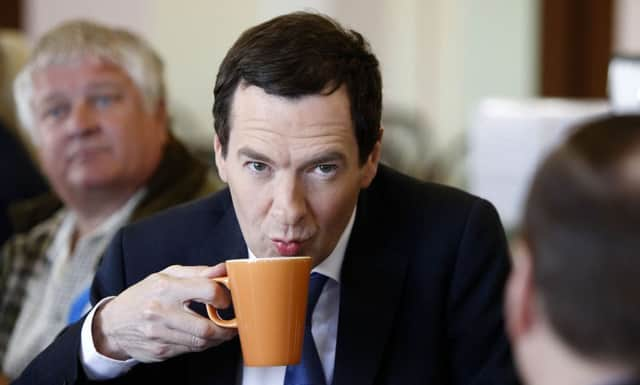Taxing election questions won’t be everyone’s taste


And while the main parties are in agreement on some areas of tax in particular, there are some key differences that could impact on your finances – positively or otherwise – whatever the outcome of Thursday’s polls.
The electorate remains in the dark on some of the key financial issues, with the Institute of Fiscal Studies last week accusing the main parties (including the SNP) of failing to provide “anything like full details” on plans to cut the deficit in the next Parliament. The Conservatives in particular are under attack for refusing to set out where £12 billion of proposed spending cuts would fall.
Advertisement
Hide AdAdvertisement
Hide AdBut the main parties have been more clear on their plans for taxation and pensions. Here are some of the key proposals to mull over as election day approaches:
TAX
“There are areas of agreement across the main parties regarding the freezing of the main rates of VAT, income tax and National Insurance contributions,” said Richard Libberton, private wealth manager at Anderson Strathern Asset Management.
There are a few contrasts in the manifestos too. The Conservatives last week pledged to introduce legislation banning tax increases in to income tax, VAT or national insurance in the next parliament (a ploy that economists warned would undermine the UK’s fiscal credibility). It may also make it more likely that a Tory-led government would cut tax credits and freeze certain thresholds and allowances.
Both the Conservatives and the Liberal Democrats want to raise the personal tax allowance to £12,500 – although almost half of adults already earn too little to pay income tax – and the former has proposed raising the higher rate tax threshold to £50,000. The Conservatives have also set out plans for a new £1m inheritance tax threshold for married couples and civil partners.
While the Tories would increase the annual tax charges paid by non-doms, Labour have proposed abolishing non-dom status entirely so that only people who are genuinely temporary UK residents can be taxed on their UK income alone.
Labour has also proposed changes to income tax.
“The 10p income tax rate would be reinstated by Labour, with no increase in the 20 or 40 per cent tax bands,” said Gregor Munro, financial planner at Johnston Carmichael. “Those earning £150,000 or more would see their tax rate increase to 50 per cent.”
Other Labour measures include a commitment to not increasing basic and higher rates of income tax and national insurance and abolishing the ‘bedroom tax’, while it would use the money saved in Help to Buy Isas to bolster investment in housing supply.
A mansion tax on properties in England worth over £2 million and rising in line with house inflation is part of the Labour plans too, in a move supported by the SNP.
Advertisement
Hide AdAdvertisement
Hide AdThe SNP also backs Labour proposals to reintroduce the 50 per cent income tax rate and scrap non-dom status.
“There would be a reinstatement of the 50p rate of tax and the party supports an increase in personal allowances, although an increase in the higher rate threshold is not as clear cut,” said Munro.
Libberton said: “The SNP are also taking a cautionary look at the extension of the basic rate tax band to £50,000, a policy which the Conservatives are keen to adopt.”
PENSIONS
All parties have pledged to maintain the triple lock on basic state pension increases and are broadly supportive of the pension reforms that took effect last month.
“They are also keen on protecting the ‘triple-lock’ protection on the basic state pension, but with the challenge of the UK’s ageing population and set against a low inflation backdrop, this policy is becoming increasingly expensive and perhaps unsustainable in the longer term,” said Libberton.
The main election focus in pensions is on tax relief on pension contributions.
The Conservatives said that, if elected, they would reduce the annual pension allowance for those earning more than £150,000 from £40,000 to £10,000.
It would gradually reduce at a rate of £1 for every extra £2 of income until someone with an income of £210,000 would get an annual allowance of £10,000.
Advertisement
Hide AdAdvertisement
Hide AdLabour would reduce higher rate tax relief from 45 to 20 per cent for those earning above £150,000 and cut the annual allowance from £40,000 to £30,000.
The Liberal Democrats have raised the idea of a flat 30 per cent rate of tax relief on pensions, while the SNP said it would support a review of the pension tax relief available to the wealthiest.